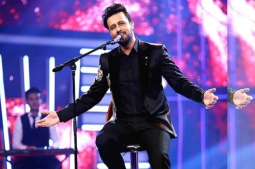Aayusha Pyakurel bags ‘first runner-up title’ at Miss Glam World 2023
9 months ago

The cause of Intimate Partner Violence (IPV) and its effects are multifold. In many parts of the country, low education, prior exposure to parental partner violence during one's childhood, and husband's alcohol abuse have been shown to be associated with the risk of IPV. Similarly, traditional gender norms reinforce aggression and dominance and increase acceptance of partner violence. Our religious grounds, morality, and social norms around masculinity, femininity, male guardianship, and patriarchy, it has a strong influence on acceptance and normalization in the means of controlling women or correcting the behavior of one's partner. Those thoughts of inferiority and traditional mentality also act as a barrier even to the educated personnel.
There are still gaps to understand the range and risk of protective factors including the perception of gender norms. People still lack insights into IPV. So, to talk about the IPV myths, what people think about it in general, and what it is not, episode 8 of the podcast sexploration titled 'General Concept of Intimate Partner Violence (IPV): Marital Rape and Partner Violence' discusses IPV in terms of all aspects such as physical, mental and emotional, how IPV is romanticized in media as well as the overlooked category of IPV. Here, the guests Kriti Adhikari, a law student, and Akriti Ghimire, a Kathmandu-based journalist who writes about social issues focused on gender, queer issues, and climate issues, share their personal experiences and their knowledge based on their research study.
"IPV is any kind of violence inflicted by your romantic/sexual partner, whether the partner is husband, boyfriend, or others with whom one is in a physical relationship. Many times, while talking about IPV, people only think about physical violence such as beating, blaming the wife for witchcraft, but it is more than that," said Akriti Ghimire. Ghimire added, " Media usually focus on physical violence too. But it is economic violence, about who has the power to decide the economic power in the power dynamic, it is about psycho-social violence, it all together forms IPV." Financial stress is also associated with IPV. It may be used to reassert men's authority in the household, and lack of income and financial independence may limit women's options for recourse in such abusive relationships. For instance, if a wife in a marital relationship faces violence and files a case when she is not financially/economically strong, she will have nowhere to go, and she will be stranded alone. Furthermore, “Although one goes to file a complaint for IPV in the cyber bureau, the process takes a long time.”
Kriti Adhikari said, " In the law of Nepal it is mentioned that the case for IPV can only be registered to a marital partner. There is no single provision for harassment. There are no provisions for nonmarital rape. There is IPV but the law doesn't recognize it. There is no activism going on regarding IPV due to the patriarchal society, typical narrative, and foundations of our society, no people go to lodge a complaint even on marital rape. Legal action is rare.
Moreover, Akriti Ghimire said, "There is no survivor security program, victim protection mechanism." "Even in the media, including movies, many portray the domestic violence happening in society. But the sensitive topic becomes a scene of enjoyment. Audiences take it normally and IPV is romanticized by the media," Ghimire stated. Blackmail, stalking, anger issues, physical brutality, manipulation, gaslighting, obsession, and controlling behavior are normalized in the name of romance.
In addition to that the most neglected form of IPV is that men and another gender, sexual minorities are not considered as victims, “Many people think that the victim of IPV is only women. while the truth is men, queer individuals especially transgender also are vulnerable to the IPVs,” said Ghimire. Many queer individuals have experienced psychological and physical abuse as sexual minorities, making it difficult for them to seek help for IPV. “In the case of men, they do not even have a place to open up about the IPV they have faced,” she said.
As a consequence, there are several effects on the victims including suicidal thoughts, anxiety, traumatic triggers, panic attacks, depression, effects on the perception towards the opposite gender, effects on healthy relationships, character assassination, preconceived notions, and biases. Thus, the podcast highlights IPV in connection with non-physical violence, unlearning the general notion of IPV, control, power, and manipulation, and the portrayal of IPV in media.
(Part 1) video link: https://www.youtube.com/watch?v=X35XnDPM-bI
(Part 2) video link:https://www.youtube.com/watch?v=2uZt8b3k9HU
- by Republica


- by Republica

- by Republica
Leave A Comment